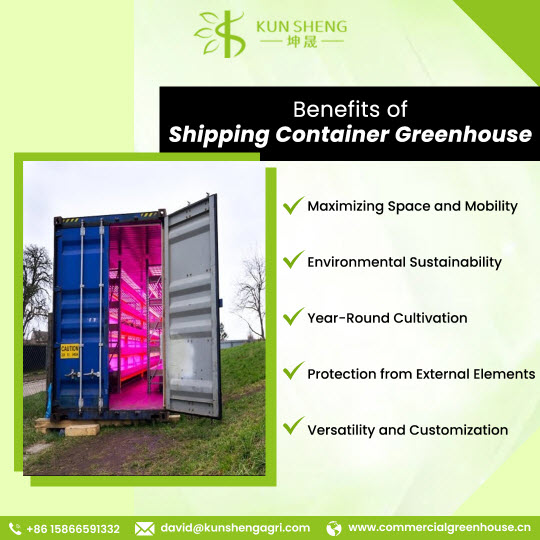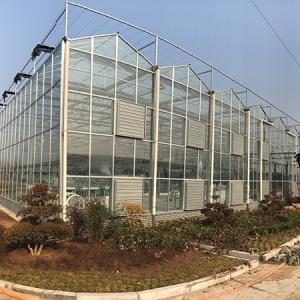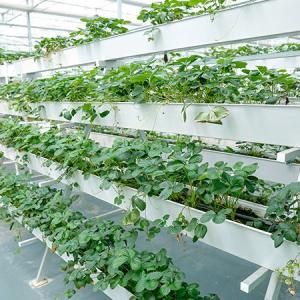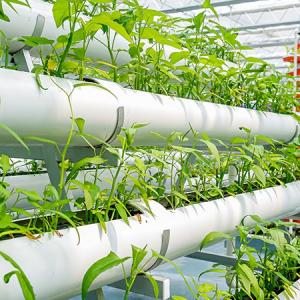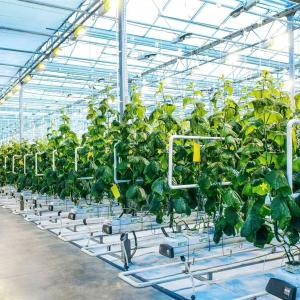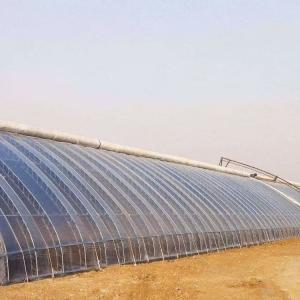How Shipping Containers are Transforming into Productive Farms?
In recent years, shipping containers have been repurposed for various innovative uses beyond their conventional transportation purposes. One of the most notable transformations is their conversion into productive farms. These container farms have become a popular solution for addressing food security concerns, limited arable land, and the need for sustainable agricultural practices.
Embracing Sustainability: The Green Revolution of Shipping Containers in Farming
Shipping containers are ushering in a green revolution in farming practices, driving the transformation towards highly productive and sustainable ventures. With their adaptability, these containers are being creatively employed in urban farming, offering a promising solution to the pressing food production challenges in densely populated areas.
Discover how these seemingly simple steel structures are becoming the focal point of innovative farming endeavors. By repurposing shipping containers, farmers are embracing sustainability and efficiency in growing fresh produce, irrespective of urban space constraints.
Witness how these green initiatives are shaping the future of agriculture, promoting self-sufficiency, and making a positive impact on both the environment and communities. As shipping containers continue to revolutionize farming, they pave the way for a greener, more sustainable world.
From Cargo to Crops: Converting Shipping Containers for Farming
In recent years, a fascinating trend has emerged in the world of agriculture - the conversion of cargo shipping containers into high-tech farms. This innovative approach is rapidly gaining popularity, and for good reason. By leveraging hydroponic and vertical farming techniques, these repurposed containers are evolving into miniature self-sustaining ecosystems, revolutionizing the way we grow fresh produce.
The beauty of container farming lies in its adaptability and efficiency. These compact farms can be set up virtually anywhere, from urban rooftops to vacant city lots, making use of otherwise unused spaces. By eliminating the need for traditional soil-based farming, container farms minimize water usage while maximizing crop yield.
With hydroponics, plants are grown in nutrient-rich water solutions, eliminating the need for soil. Vertical farming takes advantage of vertical space, stacking plants in multiple layers, thus multiplying the productivity of the farm. These two techniques combined create an agricultural powerhouse within a standard shipping container.
The benefits of converting shipping containers into farms are manifold. First and foremost, container farms allow for year-round production, shielded from adverse weather conditions and seasonal limitations. This means a consistent supply of fresh, locally grown produce, even in the heart of winter.
Additionally, container farms provide an answer to the growing concern of food miles - the distance food travels from farm to table. By situating these farms in or near urban centers, produce can be grown right where it's needed, reducing transportation distances and lowering carbon emissions.
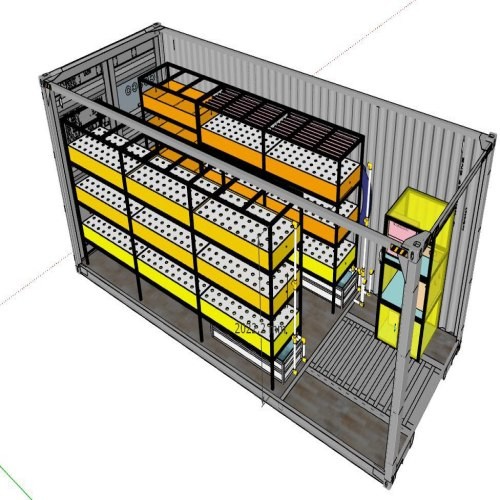
The Advantages of Container Farms: Efficiency and Resource Optimization
Container farming offers a plethora of advantages that contribute to a more sustainable and eco-friendly approach to agriculture. One of the key benefits is optimized land use. By utilizing vertical space and compact layouts, container farms can produce a higher yield per square foot compared to traditional farms. This efficient use of space is particularly valuable in urban areas where land is limited and expensive.
Another significant advantage is the reduced water consumption in container farms. Through advanced irrigation systems like hydroponics and drip irrigation, these farms use up to 90% less water than conventional farming methods. This water-saving feature not only conserves a precious resource but also minimizes the strain on local water supplies.
Moreover, container farms greatly reduce the need for harmful pesticides and herbicides. In the controlled environment of a container, pests and diseases can be managed more effectively through integrated pest management techniques and natural pest predators. As a result, the reliance on chemical treatments is minimized, promoting healthier produce and a safer working environment for farmers.
Container farms also offer the benefit of year-round production. By eliminating dependence on weather conditions, farmers can maintain a steady supply of fresh crops throughout the year. This consistent production not only stabilizes the market but also enhances food security, especially in regions with unpredictable climates.
Furthermore, these farms can be set up in close proximity to consumers, reducing the food miles and carbon footprint associated with transportation. The shorter supply chain ensures that produce reaches consumers fresher and with minimal environmental impact.
Additionally, container farming allows for greater control over growing conditions. Farmers can adjust factors such as temperature, humidity, and lighting to optimize crop growth and quality. This level of precision farming results in better yields and more consistent produce.
For eco-conscious farmers and entrepreneurs, container farms present an attractive choice that aligns with sustainable and environmentally friendly practices. By embracing this innovative farming method, they can make a positive impact on the environment, contribute to food security, and cater to the increasing demand for locally sourced, fresh, and healthy produce.
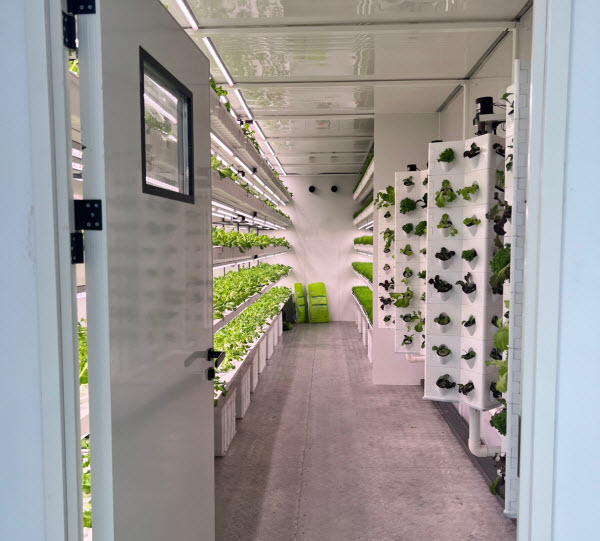
Overcoming Space Constraints: Container Farms and Urban Agriculture
As urbanization accelerates, traditional agriculture confronts a critical obstacle - the scarcity of suitable land. Container farms are emerging as the solution, revolutionizing urban agriculture and bringing sustainable farming practices closer to city dwellers.
One of the most significant advantages of container farms is their ability to thrive in limited spaces. By utilizing vertical farming techniques, these compact and versatile farms can be set up on rooftops, vacant lots, or even in disused warehouses. The vertical orientation maximizes growing space, allowing farmers to cultivate more crops in a smaller footprint.
Urban agriculture has been gaining traction as a means to promote food security and self-sufficiency in cities. Container farms play a pivotal role in this movement by providing a local and reliable source of fresh produce. With the farm-to-table concept gaining popularity, consumers are increasingly seeking locally grown, pesticide-free produce. Container farms cater to this demand, ensuring that city residents have access to nutritious and high-quality food.
By reducing the distance between the point of production and consumption, container farms significantly lower the carbon footprint associated with food transportation. This reduction in food miles contributes to a more sustainable urban environment by minimizing greenhouse gas emissions and traffic congestion.
Container farms also offer the potential for year-round production, independent of external weather conditions. This constant supply of fresh crops enhances food security, especially in regions where seasonal changes could otherwise lead to shortages.
Moreover, container farms can play a vital role in transforming abandoned urban spaces into productive agricultural hubs. By revitalizing neglected areas, these farms not only contribute to the aesthetics of the city but also create opportunities for entrepreneurship and community engagement.
In addition to the tangible benefits, container farms also provide educational opportunities for city dwellers. Through educational programs and community involvement, container farms can raise awareness about sustainable farming practices and foster a deeper understanding of the food production process.
The Future Landscape: Shipping Containers Paving the Way for Greener Farming
Container farming offers a scalable and adaptable solution for sustainable agriculture. With advancements in technology and agricultural practices, these farms can be tailored to meet the needs of various crops and climatic conditions. This versatility opens up possibilities for expanding container farms to different regions, including urban areas, arid landscapes, and even remote locations.
Investment in container farming holds promise for both experienced farmers and aspiring entrepreneurs. The relative ease of setup and reduced land requirements make it an attractive option for new entrants in the agriculture sector. As the demand for locally sourced and organic produce continues to rise, container farms present an opportunity for profitable and environmentally responsible ventures.
In urban centres, container farms have the potential to transform the cityscape, converting underutilized spaces into vibrant agricultural hubs. This urban agriculture movement not only enhances the aesthetics of the city but also fosters community engagement and self-sufficiency.
Furthermore, the integration of renewable energy sources, such as solar panels and wind turbines, can power container farms, reducing their reliance on traditional energy grids and making them even more environmentally friendly.
Container farming is not just a passing trend; it is a viable solution to address the challenges posed by population growth, climate change, and the need for sustainable food production. By empowering farmers with efficient and resource-conscious farming methods, container farms contribute to the preservation of natural ecosystems and biodiversity.
